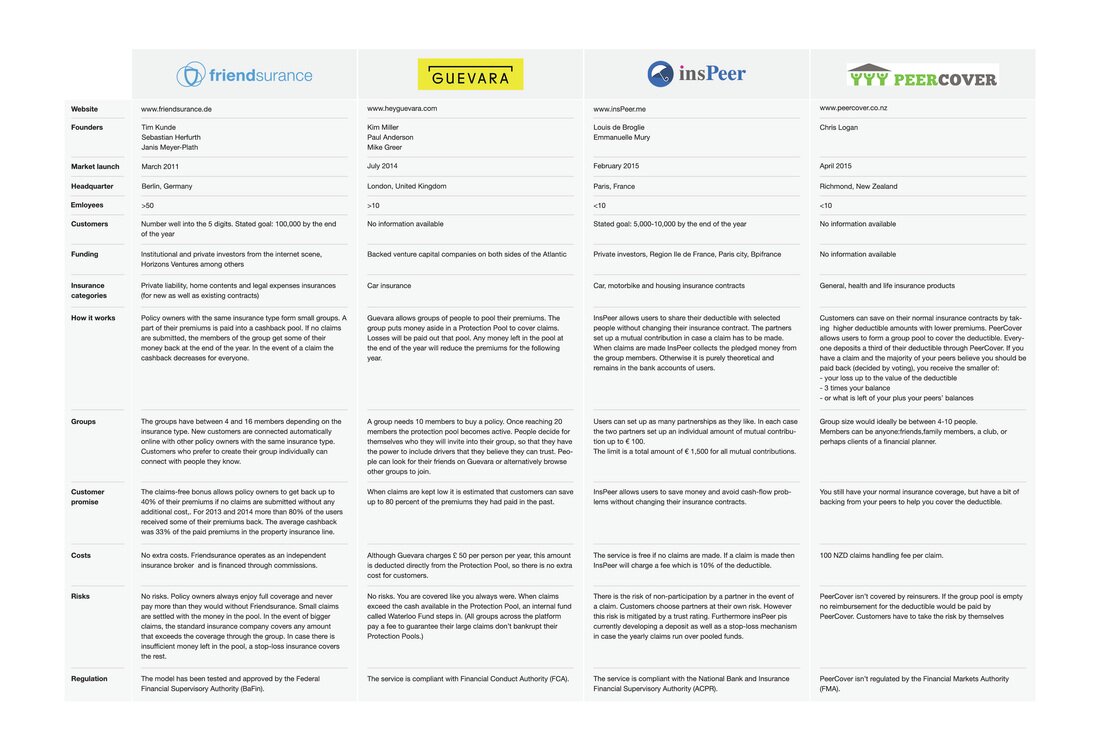- Primarily for medical costs
- Members commit to pay a certain amount each month towards any medical expenses that members in their group may have.
- The cost sharing organizations streamline members' donations and make sure they make it to other members who are in need that month.
- Members are generally required to examine costs prior to making health care decisions which keeps costs low.
- Because this is not insurance, there is no guarantee that medical bills will be paid.
- There are rules or guidelines that provide for what types of expenses the membership will share and what types are not approved for sharing.
- The member base is sufficiently large that the fact that there is no guarantee is largely legal semantics.
- Members who have common ethical or religious beliefs
But what about 'P2P Insurance'^ like PeerCover:
-
Primarily for car insurance but able to be adapted to other risks (pet, phone, health, house etc)
-
Members deposit monies which may pay for costs that members in their group may have
-
PeerCover streamline members' deposits and payment to other members who have claims
- Members are expected to only claim for reasonable expenses as the group can vote down the payment (by majority only)
- There is no guarantee that claims will be paid
- There are rules around the maximum payment*
- The member base is small but so are the risks taken (insurance excess or gaps in insurance cover) so the fact that there is no guarantee is not a big issue
- Members who have common beliefs i.e. transparency will lead to better outcomes, no claim means no costs, fairness over fine print
^ P2P Insurance has different interpretations, some have no deposits but can call on members to fund losses, others use insurers to redistribute premium - not just to pay claims, expenses and profit but also to pay claims experience discounts.
* the smaller of member net loss after insurance, 3x the members deposit, the total of the PeerGroup deposits less the $100 claims administration fee

